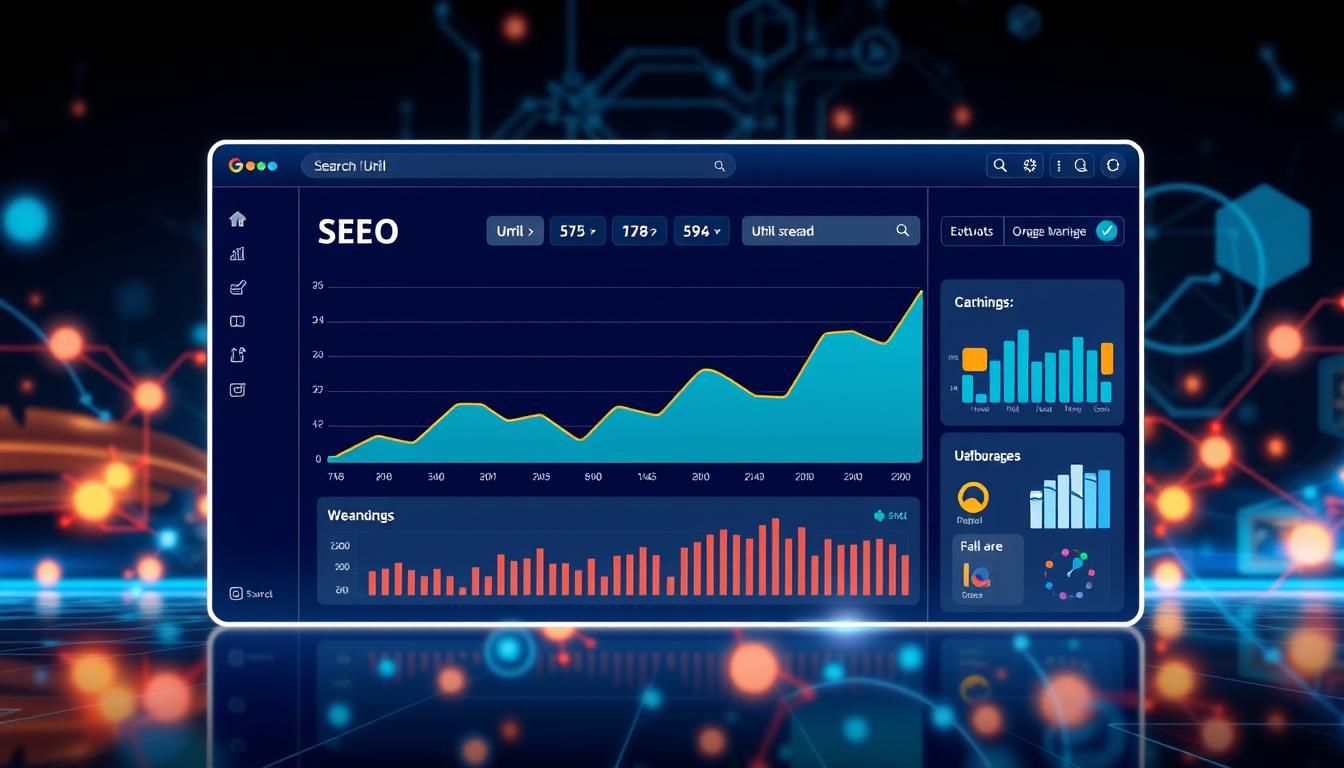Master Website SEO Optimization for Unstoppable Growth

In the digital era, a staggering 68% of online experiences begin with a search engine, illustrating the pivotal role that SEO optimization plays for websites. Understanding this landscape, SEO has morphed from just being a set of tricks to a sophisticated combination of art and science. Professionals strive to ensure that websites meet the dynamic algorithms while offering relevant content to users.
The journey of SEO optimization began in the late 1990s, a time when keyword stuffing was a common practice. Today, it’s evolved into a multifaceted approach where over 200 factors can influence a website’s ranking. Incorporating elements like mobile-friendliness and high-quality content is essential in this competitive field. A remarkable study revealed that the top result in Google’s organic search results has an average CTR of 31.7%, highlighting the critical importance of climbing to that coveted position.
Key Takeaways
- SEO boosts website visibility and attracts more traffic online.
- High-quality content plays a vital role in effective SEO strategies.
- Mobile-friendly websites rank higher on search engines like Google.
- Quality backlinks from credible sources enhance site authority.
- User experience impacts SEO and influences site ranking positively.
Website SEO Optimization: A Crucial Digital Strategy
Website SEO optimization is an essential strategy for businesses looking to thrive online. Without proper SEO, a website can get lost in the vast sea of the internet. It’s like having a store but no one can find it. When websites are optimized, they rank higher on search engines, making them easier to locate. This directly increases traffic, leading to more potential customers.
SEO optimization involves several important elements. Keywords are one crucial factor, helping search engines understand what a website is about. However, it’s not just about keyword placement; quality content is also key. According to this post, having a well-structured website architecture boosts usability and SEO. This means making your site easy for search engines and users to navigate.
Another significant component of SEO is improving the domain authority of a website. A higher domain authority means a website is more likely to rank well. Tools like the domain authority checker can help track this progress. Maintaining good SEO practices over time can lead to a stronger online presence. This is why SEO isn’t just a one-time task but a continuous process.
SEO optimization also includes technical aspects like mobile responsiveness. More people are browsing on their phones, so having a mobile-friendly website is important. Fast loading speed is another crucial factor. If a page takes too long to load, visitors may leave before they even see the content. Thus, combining quality content with technical efficiency ensures a robust SEO strategy.
How SEO has morphed over the years
SEO has come a long way since its inception in the late 1990s. Back then, it was common to stuff websites with keywords to rank higher on search engines. Over time, search engines like Google became smarter. They started penalizing sites that used tricks to get ahead. This evolution has made SEO more about quality than quantity.
In the early 2000s, link building became a focus area. Websites exchanged links, trying to improve their rankings. Today, the focus is on earning high-quality backlinks. Search engines now value links from reputable sources more. This change means that SEO is more about building genuine relationships and providing real value.
With more people using smartphones, mobile SEO has gained importance. Websites need to be mobile-friendly to rank well now. This includes responsive designs and faster loading times. Mobile optimization ensures a good user experience, which is vital for SEO. As technology continues to evolve, SEO adapts to keep up with these changes.
Content has also taken center stage in modern SEO strategies. Good SEO requires relevant and engaging content that meets user needs. Now, search engines reward content that is informative and valuable. Using multimedia elements like images and videos can enhance this. Thus, today’s SEO is about blending strong content with user experience.
The Role of Content in SEO Optimization
Content is the backbone of any effective SEO strategy. When search engines crawl your website, they focus on the content to determine how it ranks. High-quality content attracts more visitors and keeps them engaged. This engagement signals search engines that your site is valuable. As a result, your site may rank higher in search results.
Creating content that ranks well involves several factors. Keywords are important, but they should be used naturally. Overusing keywords can hurt your site’s ranking. Instead, focus on providing valuable information. Lists, such as
- tips
- steps
- questions
, can make your content more engaging and easier to read.
Search engines also favor fresh, updated content. Regularly publishing new content keeps your audience engaged and attracts new visitors. This can include
- blogs
- articles
- multimedia
content, each contributing uniquely to SEO success. Updating existing pages with current information can also boost their visibility. Consistent publishing can therefore significantly enhance your site’s SEO profile.
Multimedia elements like images and videos enhance content quality. These elements can help break up text and keep readers engaged. Using descriptive alt text for images can also improve SEO. Ensuring multimedia is optimized for faster loading is equally key. Thus, combining engaging content with multimedia can elevate your SEO strategy.
Mobile-Friendliness: Key Factor in SEO Optimization
Mobile-friendliness is a crucial element in SEO optimization. As more people use smartphones for browsing, search engines prioritize sites that perform well on mobile devices. A mobile-friendly site adjusts its layout based on the screen size. This adaptability ensures a better user experience, no matter the device. Consequently, websites that are not mobile-friendly can see lower search rankings.
Search engines use mobile-first indexing to rank websites. This means they look at the mobile version of a site before the desktop version. Mobile-first indexing impacts SEO because a site’s mobile performance directly affects its ranking. Therefore, businesses should ensure their websites are optimized for mobile browsing. Using responsive design is one way to achieve this.
Fast loading speed is another important factor for mobile optimization. Mobile users expect sites to load quickly. If a site takes too long, visitors may leave, impacting bounce rates and SEO. Compressing images and minimizing code can speed up load times. Thus, quick-loading pages are likely to rank higher in search results.
Clear navigation is essential for mobile user experience. Users should be able to find information effortlessly. Simple menus and easily clickable links can enhance user satisfaction. A well-structured site is more likely to keep visitors longer. As a result, clear navigation can contribute to better SEO performance.
Mobile users appreciate sites that allow for easy content consumption. This means readable fonts and appropriately sized images. Ensuring that elements are easily viewable without zooming enhances usability. Offering a seamless experience on mobile leads to more satisfied visitors. This satisfaction often translates into improved SEO rankings.
Impact of Website’s SEO Optimization on Rank Position
The power of SEO optimization is evident in its influence on a website’s rank position. Better SEO practices lead to improved visibility on search engines. High-ranking sites appear at the top of search results, attracting more clicks. This results in increased web traffic and potential customers. A well-optimized site makes it easier for search engines to understand its content.
Several factors affect a site’s ranking in search engines such as Google. Websites with valuable, fresh content generally earn better positions. Effective keyword usage helps search engines determine relevance. Moreover, speed and mobile-friendliness play roles in how sites rank. Altogether, these elements work together to boost a site’s position on search results pages.
SEO optimization can also impact a site’s authority and trustworthiness. Search engines prioritize sites that users find reliable and credible. Earning high-quality backlinks from reputable sources can improve a site’s authority. This, in turn, positively influences rank position. Building authority is an ongoing process, requiring consistent effort over time.
User experience is increasingly important for SEO. Search engines track how users interact with a site to gauge its value. Factors like page load time, navigation ease, and mobile compatibility all impact user experience. Improving these areas can lead to lower bounce rates and higher ranks. Therefore, prioritizing user experience is crucial in SEO optimization.
Monitoring SEO performance is essential for maintaining or improving rank position. Analytics tools can provide insights into what’s working and what needs improvement. Regular updates to content and strategy help keep a site’s SEO in top shape. Making adjustments based on analytics data can strengthen a site’s position. This adaptability to change keeps a website competitive in search engine rankings.
Conclusion
Incorporating effective SEO strategies is crucial for enhancing a website’s visibility and user engagement. By focusing on elements like mobile optimization, high-quality content, and quick loading speeds, businesses can significantly improve their search engine rankings. As the digital landscape evolves, staying updated with SEO practices remains vital for competitive edge.
Backlinks and user engagement further bolster a site’s authority and relevance in search results. Consistently refining SEO techniques not only attracts more traffic but also fosters better user experiences. In the dynamic world of SEO, continuous learning and adaptation are key to sustained online success.
Frequently Asked Questions
Website SEO optimization is crucial for improving search engine visibility and driving traffic. Here, we address some common questions to help you understand the essential aspects of SEO.
1. What are the key elements of on-page SEO?
On-page SEO focuses on optimizing elements within your website to enhance visibility. These include using relevant keywords in your content, optimizing meta tags, and ensuring your URLs are clean and descriptive. It also involves having a responsive site design and fitting multimedia elements to keep users engaged.
Another vital part of on-page SEO is improving user experience. This can be achieved by decreasing page-load times and ensuring easy site navigation. A site that is easy to use will keep visitors on your page longer, which boosts your search rankings over time.
2. How does mobile optimization affect SEO?
Mobile optimization is critical since more people browse the internet using their phones. Ensuring your site looks and functions well on smaller screens is essential for retaining visitors. Google now prioritizes mobile-friendly websites, so neglecting this aspect can hurt your rankings.
Besides responsive design, fast loading times on mobile are crucial. Visitors may leave your site if it takes too long to load. Focusing on optimizing images and reducing code can help enhance mobile performance significantly.
3. Why are backlinks important for SEO?
Backlinks are links from other websites that point to your site, acting as votes of confidence. Search engines view these links as endorsements, which can boost your site’s authority. More quality backlinks can lead to higher rankings and increased web traffic.
It’s important to focus on obtaining backlinks from reputable sites. Low-quality links can harm your SEO efforts. Building relationships and engaging in guest blogging are effective ways to earn valuable backlinks.
4. Can user engagement impact SEO rankings?
Yes, user engagement greatly affects SEO rankings. When users spend time on your site, it signals search engines that your content is valuable. Pages that keep users engaged tend to rank better in search results.
Engagement can be enhanced by offering informative content and interactive elements such as videos or quizzes. Keeping visitors actively involved increases the chances of them exploring more pages, which can improve your site’s overall rank.
5. How does loading speed influence SEO?
Loading speed is a crucial factor in SEO, as users prefer fast websites. Slow-loading pages can frustrate visitors and increase bounce rates. Search engines like Google rank fast-loading sites higher because they offer a better user experience.
Improving loading speed involves minimizing file sizes and utilizing browser caching. As a result, faster sites not only retain more visitors but also enjoy better visibility on search engines, helping them attract more traffic.





